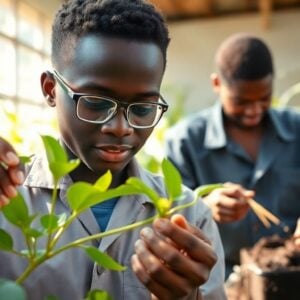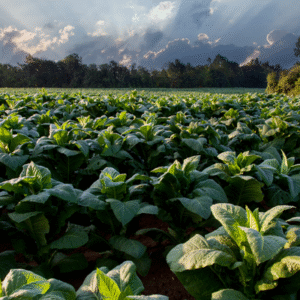The International Fund for Agricultural Development (IFAD) and the Government of Vanuatu have launched a US$11 million partnership to improve food security and nutrition for more than 15,000 people in one of the world’s most climate-vulnerable countries. The Agricultural Investment for Markets and Nutrition (AIM-N) initiative will build on traditional farming systems to help families grow, buy, and eat more nutritious food.
Vanuatu, a small Pacific island nation, is ranked by the UN’s World Risk Index as the most at-risk country for climate change. Despite nearly 90 per cent of households growing vegetables, productivity remains low. Malnutrition and poor diets are a major concern, with nearly one third of children under five stunted and one in five adults overweight, a problem linked to the availability and preference for cheap food imports. AIM-N seeks to reverse these trends by strengthening local food systems and creating sustainable economic opportunities around nutritious food production.
According to IFAD’s Country Director for the Pacific Islands, Candra Samekto, the initiative is not only about improving incomes but also about building healthier futures by directly connecting agriculture with nutrition and markets. The project will support community and kitchen gardens, enhance diets in six secondary boarding schools by sourcing food from local farmers, and foster partnerships between smallholder farmers and buyers. It will also improve production quality, build farmers’ business skills, and provide competitive grants for women’s groups to support nutrition and labour-saving activities.
The project has a total budget of US$11.3 million, including a US$6.1 million grant from the Global Agriculture and Food Security Program (GAFSP) administered by IFAD. Additional contributions include US$2.1 million from the private sector, US$1.7 million in domestic cofinancing from the government and community, and US$1.4 million from GAFSP managed by the Food and Agriculture Organization (FAO). Implementation will be led by the Ministry of Agriculture, Livestock, Forestry, Fisheries and Biodiversity/Department of Agriculture and Rural Development in the provinces of Malampa, Penampa, and Tafea, benefitting 15,350 people across 65 rural communities where subsistence farming dominates.
This partnership is aligned with IFAD’s Strategy for Engagement in Small Island Developing States 2022–2027 and its broader approach to supporting fragile contexts. By focusing on nutrition, resilience, and sustainable livelihoods, AIM-N aims to help rural families in Vanuatu move out of poverty while strengthening their ability to withstand climate and economic shocks.







